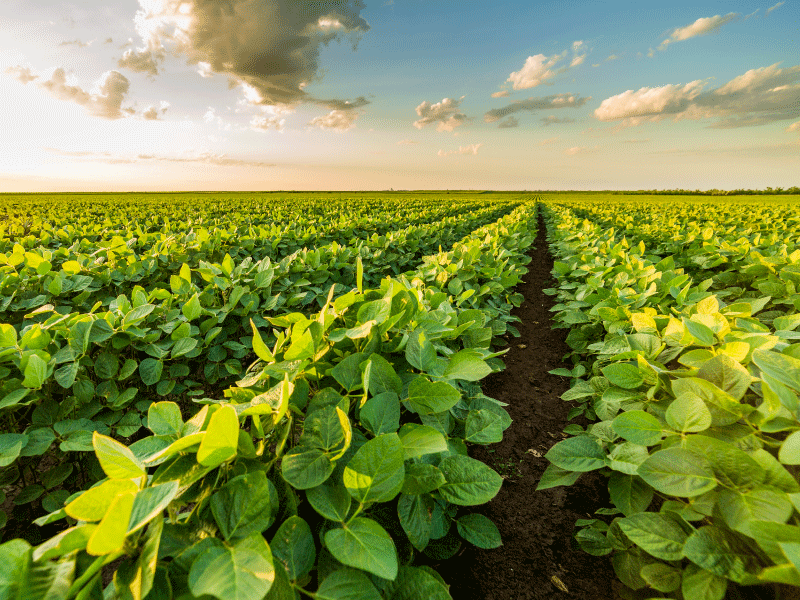Retail-Centric Venture Capital Investment Takes Center Stage with New Funding in Taranis, Growers Edge
It wasn’t so long ago that agriculture was the darling industry of venture capital investment. It seemed as though any idea employing technology that could “magically” solve problems that decades of industry effort and attention couldn’t solve could get a check scratched.
Thankfully, the smack of economic reality, and the monumental challenges of scaling anything in agriculture among many challenges, have flushed out the most ill-conceived ideas, leaving the industry to sort through a relative handful of systems and concepts that have endured against the odds. And, the surviving companies are earning the right to continue by honing their offerings to match real market needs.
Many of the best ideas that have stuck around offer to solve problems and challenges that improve the current system, rather than promising to revolutionize it. As editor of a media brand that has championed the agricultural retailers and trusted advisers to farmers, it’s especially great to see tech offerings with value propositions that are maximized with the inclusion of an engaged trusted adviser.
So it’s very encouraging to see that two retail-centric tech startups recently received additional funding this month. On July 8, Growers Edge closed on $40 million in Series B funding. And this morning, agriculture intelligence company Taranis announced it has closed on an additional $30 million in Series C venture capital investment.
Growers Edge launched originally with an eye towards positively disrupting the crop insurance, but pivoted to an area of increasing attention: technology and input performance warranties. Recent initiatives, including Bayer’s outcome-based strategy launched in 2019, have highlighted the significant drag that risk places on farmer adoption of new seed and input products, technology, and new practices.
By working hand-in-hand with retailers, the trusted adviser to farmers, to develop warranty programs that allow farmers to incorporate new products and practices, adoption should correspondingly rise with reduced overall risk to the farm business.
“We hope that we can develop and help position a product offering as one that gives retailers the edge as far as innovation in the eyes of their customers,” says Growers Edge CEO Dan Cosgrove, “And, it can also help retailers to do a better job of product placement, to deliver good agronomic services to their customers, and give farmers a better return on the cash they spend in their operations.
“The economy is tight and farmers are cutting back,” he adds, “so if we can come up with an incentive to allow farmer-customers to adopt new tools, from seed and crop protection to digital and precision agriculture without as much risk, the benefit to both retailer and farmer should be very strong.”
Tracy Linbo, who recently left South Dakota-based retailer Agtegra to join Growers Edge, says that the individualized development process is important to success. While there are certainly some similarities from retailer to retailer, the tailoring of programs to fit the needs of the retailer and its customers is the only way it works effectively.
“A lot of ag retailers see this as a way to strengthen relationships with growers,” says Linbo. “It’s another tool around which they can have a good conversation with grower-customers, which is valuable.”
Moving agronomy programs from post-mortem – looking at the past to gain insights into the future – into proactive, in-season decision making, has proven elusive. Taranis is working to improve the odds and make the whole crop production process both more accurate and more efficient, with the participation of trusted advisers.
Taranis has moved slowly and steadily forward since coming onto the ag tech scene in 2015, and has stayed true to its core mission, stated clearly in a May, 2017 press release: “to lead the digital farming revolution by giving farmers around the globe the ability to predict and prevent detrimental threats to their crops – and bottom line.”
To this end, it has made continuous progress by focusing on aggregating the “wild west” of imagery, pulling in all viable sources, and coupling that with the development of an agronomic intelligence system that is designed to significantly streamline scouting programs and improve their accuracy. Taranis claims its system is able to capture 0.3mm/pixel resolution images of fields from planes and drones at a speed of 100 acres in 6 minutes. “With this technology, they generate precise, leaf-level diagnosis 20 times faster than the manual alternative, and with 20 times more data points scouted,” according to the company.
“Until recently, growers have had to wait on time-consuming manual scouting to assess threats, formulate an action plan, and react,” says Ofir Schlam, CEO and co-founder of Taranis “Our ag intelligence service takes out the guesswork and brings hyper-local, real-time insights from the fields to your fingertips.”
Schlam notes that wherever he goes retailers want the same thing: To bring better, differentiated, comprehensive service, and to build credibility with growers through quality engagement. “They can do this with information that is precise, local, and at the right time of the season,” he says. “Here is what is happening in your field and here is the proof.” The interaction is not about the scouting itself, but about the recommendation.
The additional $30 million investment will allow a broader rollout of Taranis’ agronomic intelligence service, AI2 SmartScout Solutions, and increased on-the-ground bench strength through the addition of more pilots and agronomic support personnel, Schlam explained. The next levels for the Taranis AI include using the data to create input prescriptions, and generating outcome-based models in season that provide a guarantee of performance with the use of specific inputs or practices. “Taking variables out of the in-season decision making process could be a real game changer,” says Schlam.
What ultimately succeeds or fails is to be seen, but it’s great to see venture-driven entities recognize the value of the retailer and trusted adviser in the crop production process.






